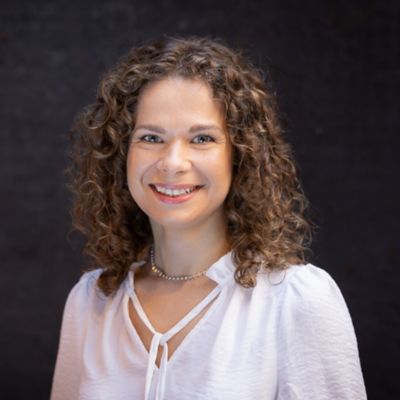
“Shades of Agency – Choice, Survival and Resistance of Jewish Women During the Holocaust in Transnistria”
Professional Background
Lilia Tomchuk is currently a PhD candidate in history at the Goethe University Frankfurt am Main, where she also received a master’s degree in secondary education with dual specialization in history and Spanish. Ms. Tomchuk’s master’s thesis on sexual violence against Jewish women in Ukraine (1941–1945) was based on testimonies of the USC Shoah Foundation and received an award from the Fritz Bauer Institute. She is a native speaker of Ukrainian and Russian and her research interests include the Holocaust in occupied Ukraine and gender and sexuality history.
From 2020 to 2022, Ms. Tomchuk held the Jürg Breuninger Doctoral Scholarship at the Fritz Bauer Institute. She has also been awarded fellowships and research grants from the German-Ukrainian Historians’ Commission, the USC Dornsife Center for Advanced Genocide Research, the Vienna Wiesenthal Institute for Holocaust Studies, and Yad Vashem. Her article on the everyday life of Ukrainian Jewish children in the Zhmerinka Ghetto is forthcoming in the Museum’s journal, Holocaust and Genocide Studies. Another publication on Roma women's recollections of helping Jews during the Holocaust in Transnistria will be published in the edited volume Micro-Historical Perspectives on an Integrated History of the Holocaust (De Gruyter).
Fellowship Research
Ms. Tomchuk was awarded the 2022-2023 Center for Holocaust Studies at the Institute for Contemporary History-Munich & Jack, Joseph and Morton Mandel Center for Advanced Holocaust Studies Exchange Scholar Fellowship to conduct research for her dissertation, “Shades of Agency – Choice, Survival and Resistance of Jewish Women During the Holocaust in Transnistria.” Her project examines facets of Jewish women's agency in different contexts and under varying and changing conditions during the Holocaust in Romanian-occupied Transnistria, where Jews and Roma from Bessarabia and Bukovina were deported by Romanian authorities and where local Ukrainian Jews were brought from neighboring localities. Key dimensions of this project address the agency of Jewish women in the framework of the female body and sexuality, relationships (love and friendship), and cultural, religious, and medical activities. Identifying and analyzing women’s decisions and actions illuminate these Jewish women as agents and historical subjects, shifting away from the traditional narrative that considers women and children passive victims of the Holocaust. During her stay, Ms. Tomchuk will examine the USHMM's extensive archival collections - original material and copies from international archives and organizations - which include oral interviews, personal narratives, letters, postcards, photographs, and film material, as well as resources related to historical events in Transnistria.
